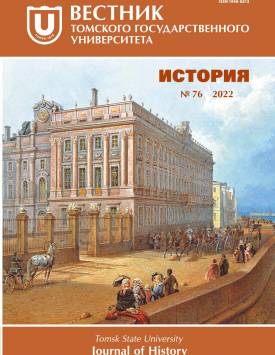The state policy of the Russian Federation on countering the spread extremist and terrorist ideology through information technologies
As part of the extended board of the Prosecutor General, February 15, 2018, the President of Russia V.V. Putin pointed out that the most serious attention should be paid to countering extremism. The authority received by the Prosecutor General’s Office to block the websites containing information of an extremist nature allowed to block over 3,000 web pages during the period of 2015-2018. Direct calls for extremist activity have been removed from over 70 thousand websites. At the same time, as V. Putin noted, radical ideology still poses a serious threat to our society and the country. The assessment made by the President confirms, refines and expands the analysis of the statistical reporting data of the Internal Affairs Ministry of Russia (dynamics of crimes of an extremist orientation for 2012-2017; dynamics of crimes against the foundations of the constitutional system and public calls for extremist activity in 2016-2017; crime dynamics of pupils and students of educational organizations in 2012-2017), the Prosecutor General of Russia on the dynamics of extremist crimes in the regions (according to the federal districts and subjects of the Federation) for 2010-2014. An important result of the analysis of the statistical reporting data of the Internal Affairs Ministry is the conclusions about the main category of people committing crimes in Russia - those who do not have a constant source of income and are unemployed - the share of whom in 2016 and 2017 amounted to 66-67%. The analysis of managerial and legislative activities, the regulatory framework and its implementation in the field of ensuring the federal, public and information security of the Russian Federation related to the prevention of extremism and the fight against terrorism for 2012 - 2017 is presented. By identifying and summarizing the practical work experience of government bodies, the article provides an algorithm for the interaction of government bodies and citizens of Russia during media audits for the publication of extremist information. The existing approach, according to the author, does not meet the requirements of ensuring national security. The problem of discrimination of the Russian media abroad (the resolution of the European Parliament of November 23, 2016 on countering the Russian media) and the countermeasures of Russia are considered as well. In conclusion, the author formulated some proposals which can help to reduce risks and threats to information security, increase the efficiency of state and public activities and preserve the cohesion of Russian society. It is also proposed to reduce the time for consideration of a written application of citizens on the prevention of extremism from 30 to 10 days (to amend Article 11 (paragraph 1) and Article 12 (paragraph 1) of the Federal Law “On the Procedure for Considering Applications of Citizens of the Russian Federation” dated 02.05.2006 No. 59-FZ) and make appropriate amendments to the regulations of federal authorities (Ministry of Internal Affairs, Prosecutor's Office, Roskomnadzor, Courts, Ministry of Justice).
Keywords
extremist crimes, terrorism, the media, information and telecommunications networks, the Internet, the effectiveness of information resources blocking, federal lawAuthors
| Name | Organization | |
| Kiknadze Vladimir G. | Russian Academy of Missile and Artillery Sciences | kiknadzevg@mail.ru |
References

The state policy of the Russian Federation on countering the spread extremist and terrorist ideology through information technologies | Tomsk State University Journal of History. 2022. № 76. DOI: 10.17223/19988613/76/3
